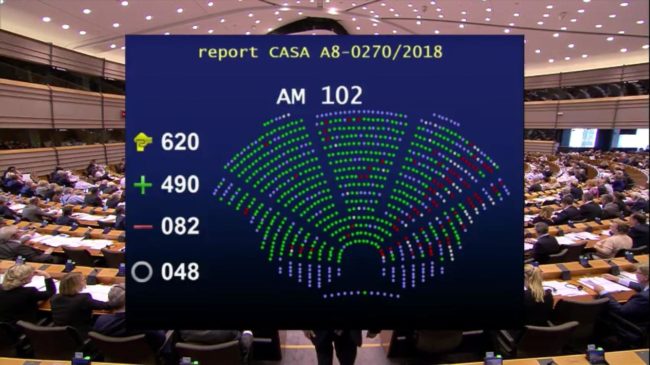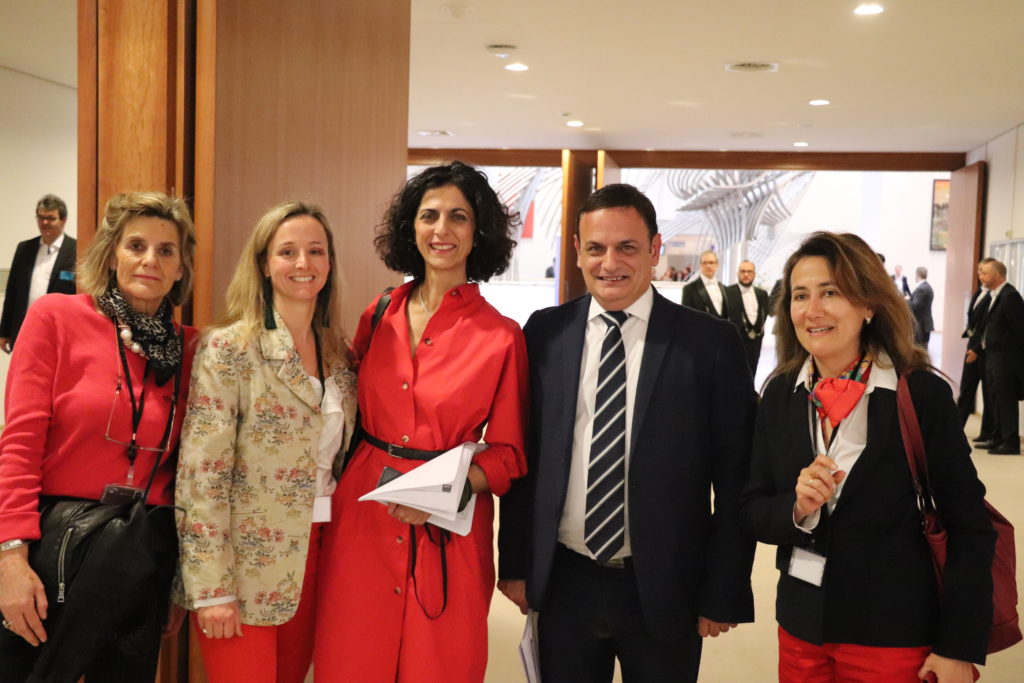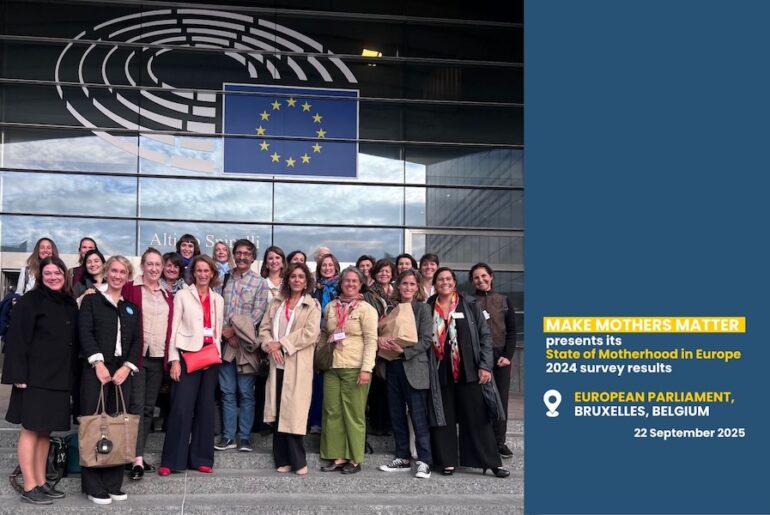Work-Life-Balance: Eu Parliament voted the new Directive
05.04.19
The EU Directive on Work-Life Balance for parents and family carers gained a very large majority, in the European Parliament on the 4th of April 2019 (490 votes in favor, 82 against, 48 abstentions). The main aim of the proposal is to enable parents and people with caring responsibilities to balance their work and family life better. It will also encourage a sharing of caring responsibilities between men and women.

After almost two years of negotiations, the Directive has been voted in the European Parliament. Since its publication by the European Commission in April 2017, we at MMM have been actively following the legislative process and engaging with policymakers to voice the needs and concerns of mothers and families. Our actions included advocating on social media using #iwantworklifebalance.

A.M. de Mathelin, O.Michelena, Marie Arena, David Casa, J. Schima
We are proud of this achievement and thankful to other European NGOs through the Alliance for the joint work we have been able to do. Everyone’s contribution has brought about this progress and improvement in the European legislative framework. The directive is particularly relevant to families in Member States currently benefiting from insufficient measures to promote a better balance between work and family life. With the European Union elections on the horizon (23-26 May 2019) it is important to show families that the EU has taken into account their needs by adopting legislation to improve the current situation in efforts of achieving a more Social Europe.
The Directive represents a minimum standard for all EU countries that must be considered as such. However, it represents an improvement of the situation for families in all countries, to a greater or lesser degree, depending on what their current situation is. Nothing prevents Member States from raising this standard.
We are advising the civil society at the national level and in particular, our member associations in all countries, to ask for more about the implementation of this directive into national legislation which will happen in the next 3 years after the formal adoption that is expected in June.
This is to be welcomed as it is a real step torwards the improvement of the work-life balance policies which benefit mothers and families, as well as better recognition and remuneration of the care provided by families. The agreement includes the following measures:
- 10 days paternity leave granted to the father after the birth of a child paid at least at sick pay level (according to national legislation)
- 4 months parental leave, including 2 non-transferable months between parents, with a salary determined by Member States for these two months
- Carer’s leave, equal to 5 days per worker per year, whose payment will be decided by the national governments
- The right to request flexible working conditions for all parents of children until 8 years or younger and carers (teleworking, reduction of working time and flexible working hours).
We regret, however, that this agreement does not take into account:
- Maternity leave provisions, which are outdated, and we hope the next European Commission will propose a revision of the EU Directive
- The right to request flexible working conditions for all parents of children until 18 years old or younger.
- The situation of the self-employed.
We hope that this will be included in the working programme of the next European Commission.
Text adopted in the European Parliament.
More general information on the Work-Life Balance initiative is available here.
The New EU Gender Equality Roadmap : A Call for Inclusion of Mothers
04.03.25
The European Commission’s initiative on a new Gender Equality Roadmap post-2025, marks a significant step forward in addressing gender disparities across the European Union. Make Mothers Matter (MMM
Breaking the Cycle: Gender Equality as a Path to Better Mental Health
18.03.25
The Council of the European Union has taken a decisive step in recognising the vital connection between gender equality and mental health.
Europe Must Listen to Mothers: Our landmark report heads to the European Parliament
28.08.25
On 22 September 2025, the voices of mothers will take centre stage in Brussels. For the first time, Make Mothers Matter (MMM) will present its State of Motherhood in Europe








